Some media companies are feeling the heat on what they describe as a tightening advertising market, particularly linear TV. But there's a very different story coming out of investor briefings in recent weeks at some of the world's biggest brands. Many brands are increasing their advertising and promotion and much bigger overall marketing budgets. Some of these listed CFOs and CEOs apparently agree with marketing’s brand building champions – at least at face value. L'Oreal's overall advertising and promotion budgets, for example, pumped 11 per cent in 2023. Its global CEO told investors the company had seen “spectacular productivity increases of up to 10 to 15 per cent” for L'Oreal brands that have trialled its proprietary AI tool called a BetIQ to measure and improve L'Oreal's advertising and promotion investments. It’s aiming to roll the tool out across 60 per cent of ad investments globally by the year-end.
L'Oreal is no outlier. Unilever, Diageo, Kellogg’s, Gucci, Mondelez, Ford and big insurance companies all told investors they're upping advertising and marketing budgets. Ironically, the main sector hacking ad spend is tech, the very platforms hauling in circa 60 per cent of that global budget growth.
Unpacking the apparent disconnect is Brian Wieser, a long-time US-based equities analyst who founded Madison and Wall, on the listed marketing services holdcos such as WPP, Omnicom, Publicis and IPG, and an avid watcher of listed brand owners and what their CEOs and CFOs say about their marketing investments.
We’ve made this podcast a two-parter. The first takes on big brands and what’s happening with their ad and marketing budgets. Part two dives into media and the holdcos – where two of the big five are doing better than most for one key reason.




